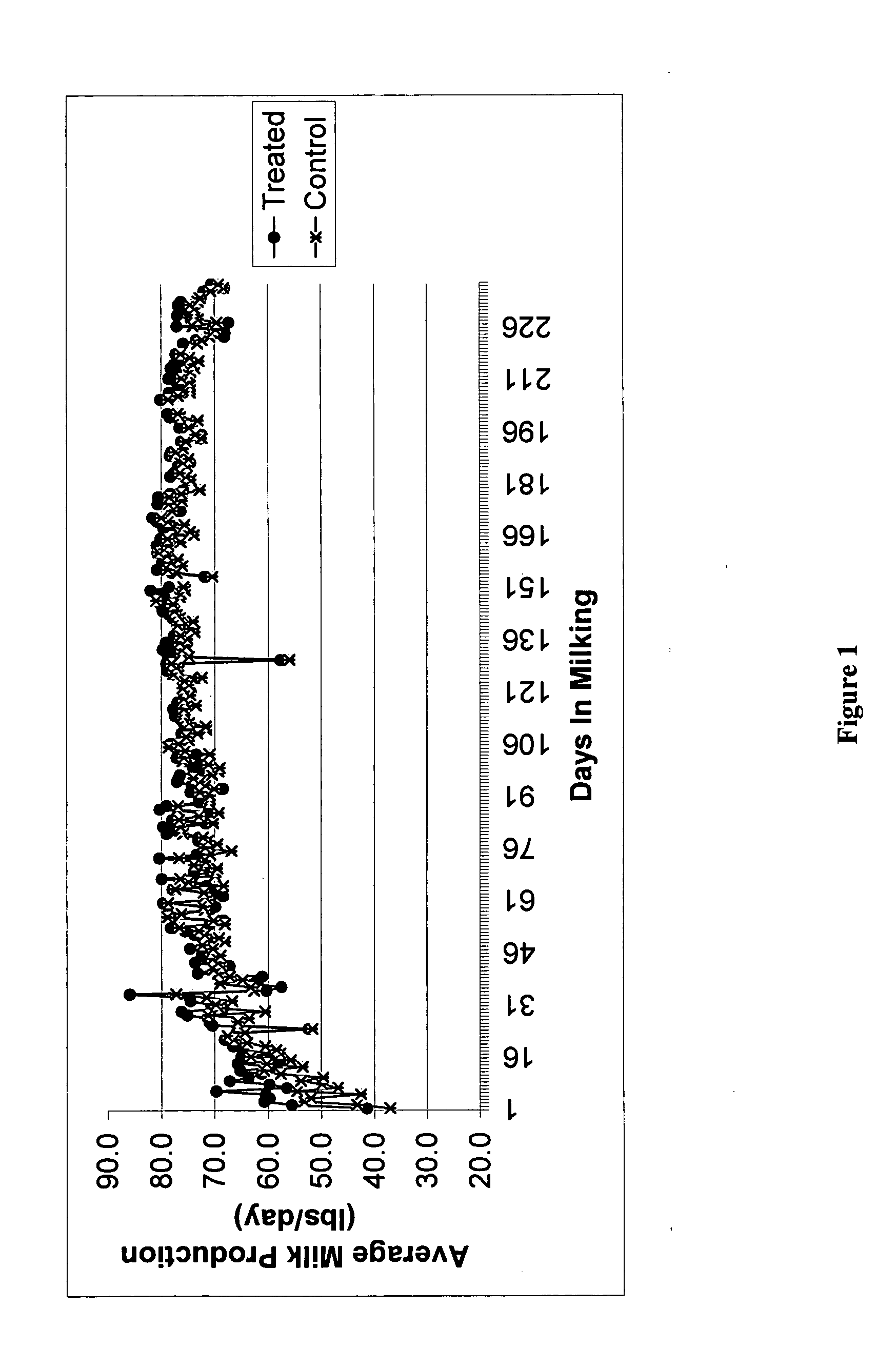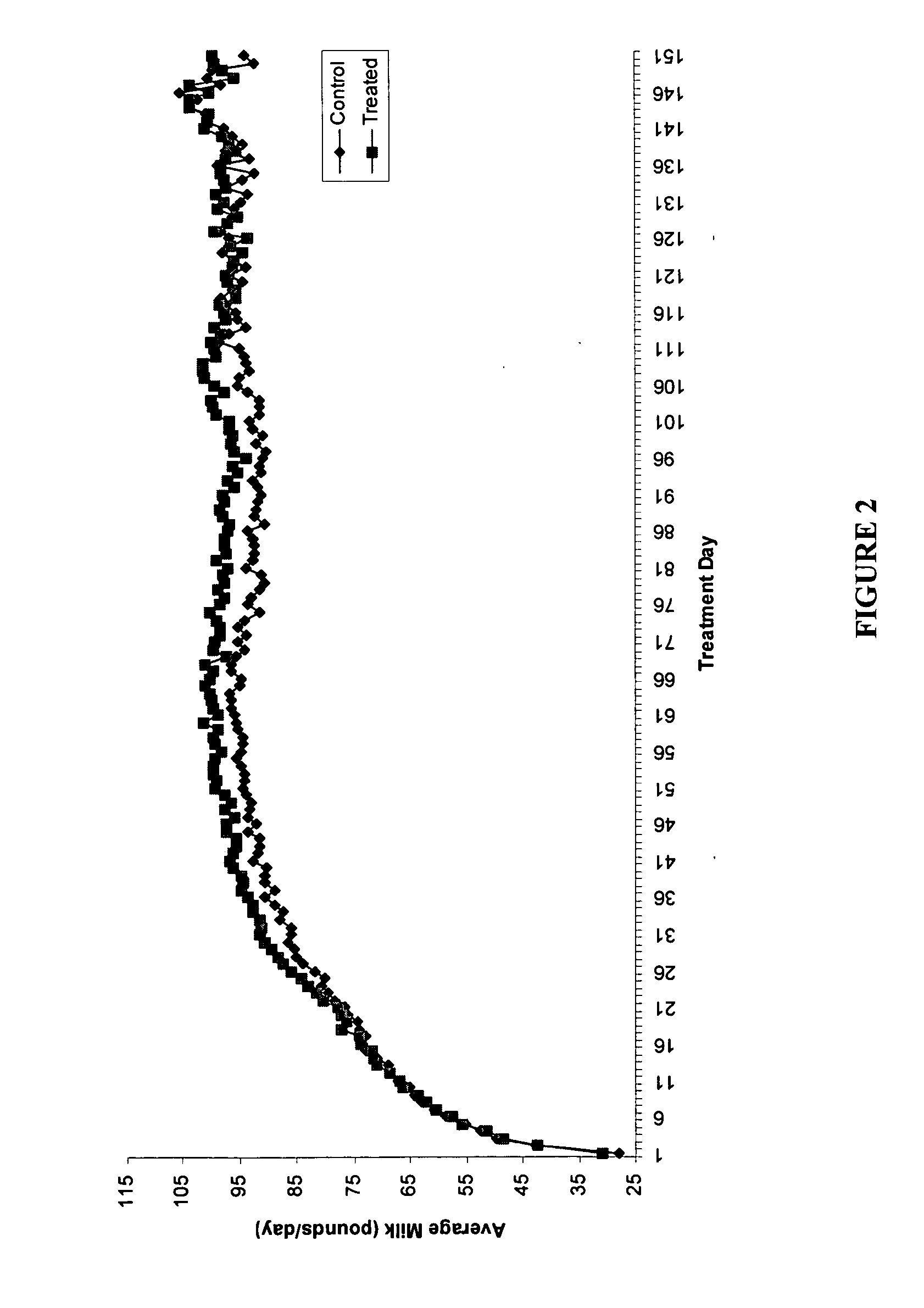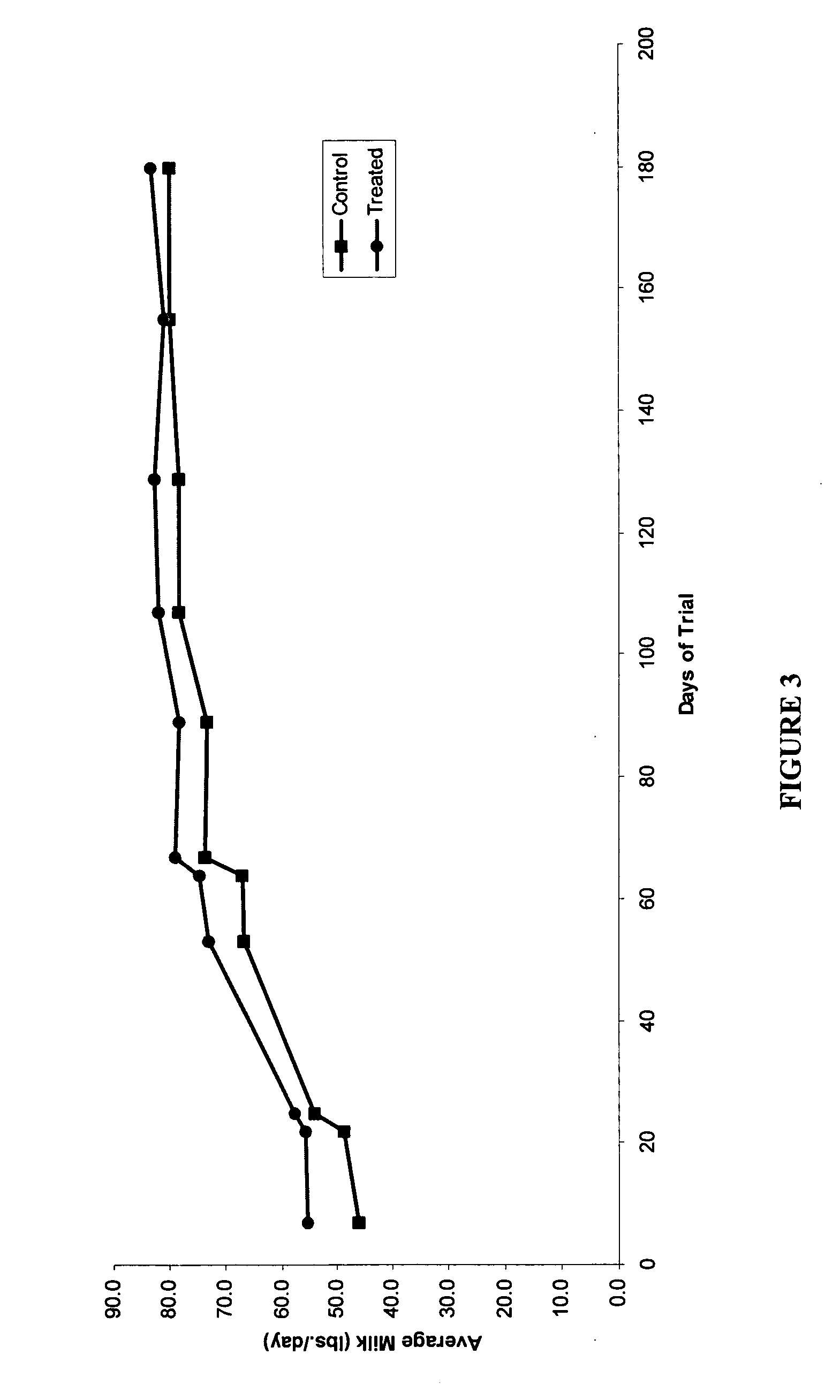Methods and compositions for increasing milk production in animals
a technology of compositions and milk production, applied in the field of methods and compositions for increasing milk production in animals, can solve the problems of unsatisfactory side effects of using bst, the administration of rumensin® must be tightly controlled, and the milk production of yucca extract was found to not increase in dairy cows. , to achieve the effect of increasing the milk production of an animal
- Summary
- Abstract
- Description
- Claims
- Application Information
AI Technical Summary
Benefits of technology
Problems solved by technology
Method used
Image
Examples
example 1
Increased Milk Production in Response to Yucca Extract
[0033] Adult, female dairy Holsteins were randomly assigned to either a treatment group or a control group in numbers show below in Table 1. Both groups of animals were managed, housed, fed and watered in accordance with standard commercial procedures. Both groups were being treated with BST. A 50 ml dose of a liquid composition (SARSTART® PLUS, SarTec, Anoka, Minn.) containing about 0.1 wt. % (HPLC) saponins was given via oral drench within 24 hours of the time of freshening (calving time) to treatment group cows freshening within the first 60 days of the study, these cows were then given a 2 ml daily dose of a composition (SARSTART® LSC, SarTec, Anoka, Minn.) also containing about 0.1 wt. % saponins (per head per day) added to the total mixed ration up until day 60 of the study and thereafter given a 4 ml daily dose of a composition (SARSTART® LSC, SarTec, Anoka, Minn.) containing about 0.1 wt.% saponins (per head per day) add...
example 2
Effects of a Saponin Containing Extract on Protozoal Counts in Cattle
[0035] Four crossbred yearling cattle were selected as subjects. The cattle weighed an average of 725 lbs at the time of surgery. Rumen fistulas were installed and 4″ cannulas were utilized to seal the fistula. The cattle were maintained on a forage ration for the duration of the study. The ration (grass hay; 10.5% CP, 55% NDF) was fed for ad libitum access.
[0036] The preliminary phase involved establishment of baseline protozoal numbers. On day 0, rumen evacuations were done on each steer to estimate rumen volume. Following evacuation, samples were taken on each of seven consecutive days to determine day-to-day variation. Samples were collected each day between 0800 and 0900 hours and processed according to the methods of Dehority, 1984, Appl. Environ. Micro., 48:182-185. Data for the preliminary phase are shown in Table 2 below.
TABLE 2Preliminary Phase (baseline)ProtozoalSteer #Volume (L)Counts (104 / ml)Total ...
example 3
Effects of a Saponin Containing Extract at Increased Concentration on Protozoal Counts in Cattle
[0039] Two crossbred yearling cattle were used for this study. The ration (grass hay; 10.5% CP, 55% NDF) was fed for ad libitum access. The preliminary phase involved establishment of baseline protozoal numbers. On day −2, rumen evacuations were done on each steer to estimate rumen volume. Following evacuation, samples were taken on two consecutive days (days −2 and −1) to determine day-to-day variation. Samples were collected each day between 0800 and 0900 hours and processed according to the methods of Dehority, 1984, Appl. Environ. Micro., 48:182-185. Data for the preliminary phase are shown in Table 4.
TABLE 4Preliminary Phase (baseline)ProtozoalSteer #Volume (L)Counts (104 / ml)Total Protozoa (1010)153.445.6 ± 7.12.4256.053.1 ± 9.03.0mean54.749.4 ± 8.02.6
*average of two days
[0040] The experimental phase involved dosing the cattle with a saponin-containing composition (0.1% saponins ...
PUM
 Login to View More
Login to View More Abstract
Description
Claims
Application Information
 Login to View More
Login to View More - Generate Ideas
- Intellectual Property
- Life Sciences
- Materials
- Tech Scout
- Unparalleled Data Quality
- Higher Quality Content
- 60% Fewer Hallucinations
Browse by: Latest US Patents, China's latest patents, Technical Efficacy Thesaurus, Application Domain, Technology Topic, Popular Technical Reports.
© 2025 PatSnap. All rights reserved.Legal|Privacy policy|Modern Slavery Act Transparency Statement|Sitemap|About US| Contact US: help@patsnap.com



